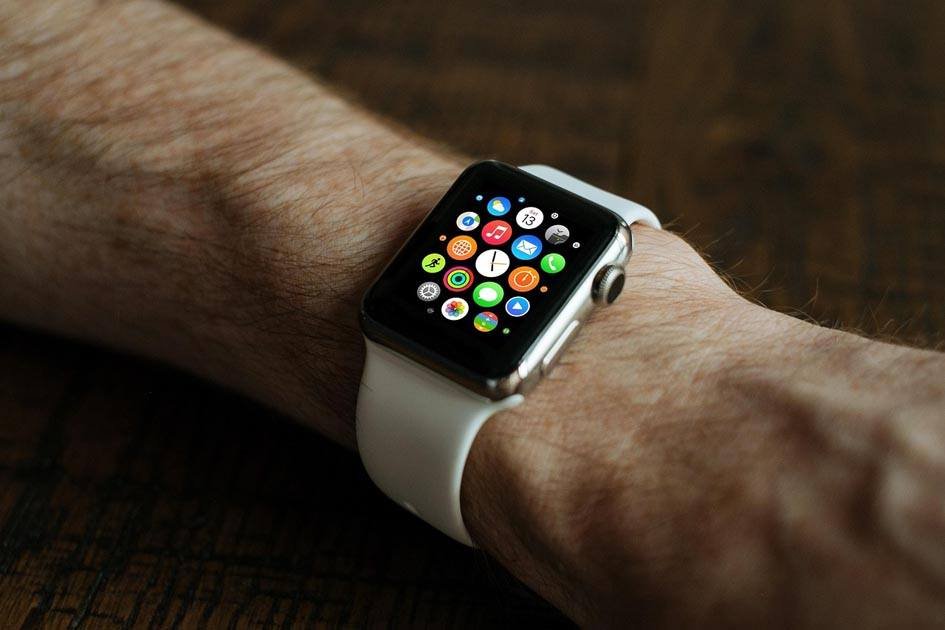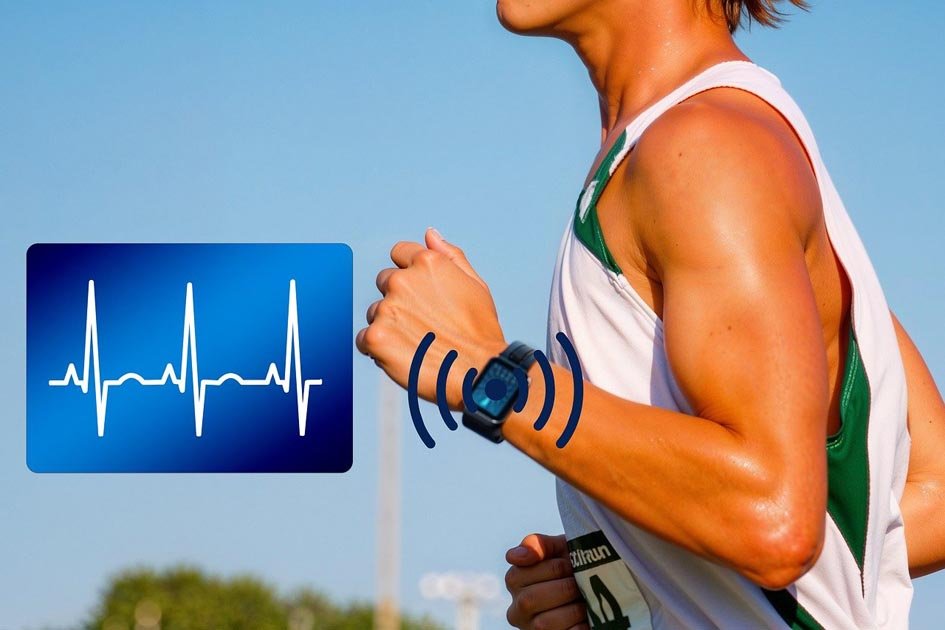How Smart Health Wearables Are Transforming the Way We Monitor Our Heart, Blood Pressure, and Daily Activity
Technology has revolutionized nearly every part of our lives — and health monitoring is no exception. Today, wearable technology allows us to keep track of vital signs in real time, helping people make smarter, faster, and more informed decisions about their health. In this article, we’ll explore how smart health wearables are transforming the way we monitor our heart, blood pressure, and daily activity — and how they’re reshaping the future of personal healthcare.
What Are Smart Health Wearables?
Smart health wearables are compact electronic devices that can be worn on the body — typically as wristbands, watches, or patches. They use sensors to collect physiological data such as heart rate, oxygen levels, sleep cycles, and physical activity. Most devices sync with mobile apps to provide insights, reminders, and long-term tracking.
Examples of Popular Smart Wearables
- Smartwatches (Apple Watch, Samsung Galaxy Watch, Fitbit)
- Fitness Bands (Garmin, Xiaomi Mi Band)
- Smart Rings (Oura Ring)
- ECG Monitors and Smart Patches
How Smart Wearables Monitor Your Heart
Heart monitoring is one of the most revolutionary functions of smart health wearables. These devices use **optical sensors** to detect blood flow under your skin — a technology known as **photoplethysmography (PPG)**. More advanced devices even include **electrocardiogram (ECG)** sensors to track the electrical activity of your heart.
Heart Monitoring: How It Works
| Feature | Description | Benefit |
|----------------------|------------------------------------------------|---------------------------------|
| PPG Sensor | Detects blood flow under the skin using light | Continuous heart rate tracking |
| ECG Sensor | Measures electrical signals of the heart | Detects irregular rhythms (AFib)|
| HRV Measurement | Tracks Heart Rate Variability | Monitors stress and recovery |
These readings help users detect abnormalities early, such as irregular heartbeats (arrhythmias) or potential signs of stress. Some smartwatches can even alert emergency services if abnormal patterns are detected — a feature that has already saved lives.
Monitoring Blood Pressure: A Major Breakthrough
Blood pressure is a crucial indicator of cardiovascular health. Traditionally, it could only be measured using a cuff. But now, advanced wearables use sensors that analyse pulse wave velocity and arterial stiffness — allowing for non-invasive, cuffless monitoring.
| Method | Technology Used | Accuracy Level | Examples |
|---|---|---|---|
| Traditional Cuff | Air Pressure Measurement | Very High | Medical Devices |
| Smartwatch Sensors | Pulse Wave Analysis | Moderate–High | Samsung Galaxy Watch, Omron HeartGuide |
| Wearable Patches | Arterial Stiffness Detection | High (Clinical-Grade) | BioBeat, Aktiia |
While wearable blood pressure monitoring isn’t yet a full replacement for medical-grade tools, it provides valuable trends and early warnings that encourage healthier lifestyle adjustments.
Tracking Daily Activity and Lifestyle Patterns
Beyond medical data, smart wearables motivate users to move more and live healthier. They record daily activities such as walking, cycling, and even sleep. Many integrate with apps that visualize your progress and send reminders when you’ve been inactive for too long.
- Step counting: Encourages daily movement goals.
- Calorie tracking: Helps manage diet and weight loss.
- Sleep analysis: Provides insights into sleep quality and restfulness.
- Stress monitoring: Measures body responses and suggests breathing exercises.
Example: Daily Health Data Tracked by Smart Devices
| Metric | Target Range | What It Reveals |
|------------------|---------------|----------------------------------|
| Steps | 8,000–10,000 | Physical activity level |
| Sleep Duration | 7–9 hours | Sleep quality and recovery |
| Resting Heart Rate | 60–80 bpm | Cardiovascular health |
| Blood Pressure | 120/80 mmHg | Heart and artery condition |
| Oxygen Level | 95–100% | Respiratory health |
The Role of AI and Data Analytics in Wearable Health Tech
Artificial Intelligence (AI) has supercharged the capabilities of health wearables. AI-driven algorithms can analyse large datasets from millions of users, identifying patterns and providing personalized recommendations. This makes health monitoring not only more accurate but also predictive.
AI-Driven Insights Include:
- Detecting potential heart rhythm irregularities.
- Predicting fatigue or stress levels based on HRV data.
- Customizing fitness goals based on past activity trends.
- Providing early warnings for potential chronic diseases.
Imagine your wearable detecting that your resting heart rate has been elevated for several days and suggesting hydration, rest, or a check-up — all before you even feel unwell. That’s the power of predictive health.
Comparison Chart: Smart Wearables vs Traditional Health Monitoring
| Feature | Traditional Devices | Smart Health Wearables |
|---|---|---|
| Heart Rate Monitoring | Manual Checkups or ECG | Continuous Real-Time Tracking |
| Blood Pressure | Arm Cuff Only | Cuffless, On-Wrist Monitoring |
| Sleep & Stress Tracking | Not Available | Automatic Night and Stress Analysis |
| Data Storage | Manual Logs | Cloud and App Integration |
| Emergency Alerts | Dependent on Doctor Visits | Instant SOS Alerts & Notifications |
Privacy and Security Concerns
With all this health data being collected, privacy is a major concern. Reputable brands encrypt your data and provide privacy controls, but it’s essential to understand what’s being shared and where it’s stored. Always read data policies before syncing third-party apps.
- Opt for devices that use end-to-end encryption.
- Regularly update firmware for improved security.
- Use strong passwords and avoid sharing login details.
Impact of Smart Wearables on Healthcare Systems
Smart health wearables don’t just benefit individuals — they also support healthcare professionals. Doctors can review long-term data trends to make better decisions and detect problems earlier.
Benefits for Healthcare Providers
| Area of Impact | How Wearables Help |
|---------------------|------------------------------------|
| Early Diagnosis | Detects heart and blood pressure issues early |
| Remote Monitoring | Allows patient tracking from home |
| Chronic Disease Care| Improves management of diabetes, hypertension |
| Preventive Health | Encourages proactive lifestyle changes |
With this continuous stream of data, hospitals can focus more on preventive care rather than crisis management — reducing costs and improving patient outcomes.
Future of Smart Health Wearables
The future of wearable tech looks incredibly promising. Emerging innovations include glucose monitoring for diabetics, hydration sensors, and even wearable ECG patches that continuously monitor heart conditions.
Upcoming Trends to Watch
- Integration with AI Health Coaches: Personalized daily advice from your wearable.
- Advanced Biosensors: Continuous monitoring of hydration, oxygen, and glucose.
- Smart Clothing: Built-in sensors in fabrics for full-body analysis.
- Medical-Grade Accuracy: Approved devices for clinical diagnostics.
Tips for Choosing the Right Health Wearable
- Define your goal: Do you want to track heart health, fitness, or sleep?
- Check compatibility: Ensure it syncs with your smartphone or health app.
- Review accuracy: Look for devices with clinical validation or FDA approval.
- Battery life: Longer battery means less hassle.
- Comfort and durability: Pick something lightweight and waterproof if possible.
Summary Table: Top-Rated Smart Wearables by Function
| Device | Best Feature | Ideal For | Approx. Price (USD) |
|---|---|---|---|
| Apple Watch Series 9 | ECG + Blood Oxygen Monitoring | Comprehensive Health Tracking | $399–$499 |
| Fitbit Sense 2 | Stress & Heart Rate Variability | Stress Management & Sleep Tracking | $299 |
| Samsung Galaxy Watch 6 | Blood Pressure Monitoring | Cardio Health & Fitness | $329 |
| Oura Ring Gen 3 | Sleep and Recovery Insights | Minimalist Users & Athletes | $299 |
| Garmin Venu 3 | Accurate GPS + Body Battery | Outdoor Fitness Tracking | $349 |
Conclusion: A Smarter Path to Health
Smart health wearables have evolved from simple step trackers to sophisticated health companions. They empower us to understand our bodies, detect warning signs, and make better choices for long-term wellness. Whether it’s heart rate, blood pressure, or daily activity, these devices bridge the gap between technology and preventive healthcare.
The future belongs to those who take charge of their health — and with these intelligent wearables, we now have the tools to do it smarter, faster, and more confidently than ever before.

